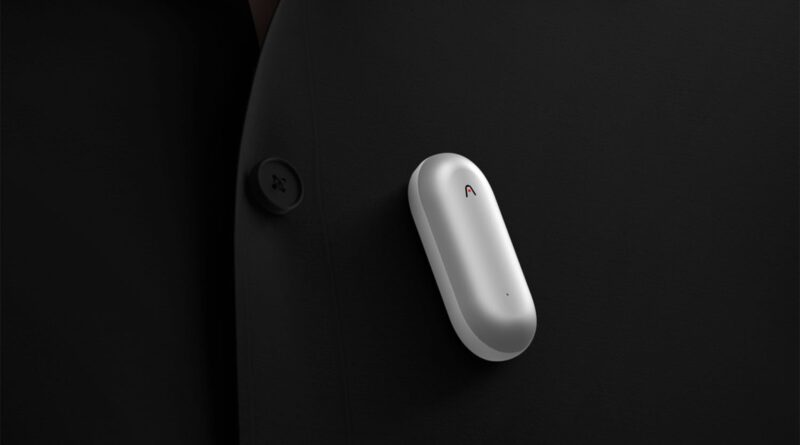The Plaude NotePin Promises to Succeed Where Other Wearable AI Has Failed
Wearable AI has not had a particularly good track record so far. This year, we’ve already seen Humane, the company behind its maligned AI pin, implode in just a few short months. The Rabbit R1 was released to similarly unfavorable reviews. Now, there’s one more company entering the arena. Instead of promising to become your ever-present AI companion, Plaud’s $169 NotePin will be your “memory capsule” for everything you do in a day.
OK, perhaps it is promising to be your everything device. As described by Plaud.AI, the NotePin can be worn as a necklace, pin, or wristband. Once active, it essentially takes a transcription of your thoughts and conversations for later. Think of it like the age-old voice recorder, though it uses a large language model to summarize audio. This works with the Plaud app to format your meetings or notes into either transcriptions or summaries.
That would be fine and dandy, but in Plaud’s press release, the company describes how the pin “learns and understands its users over time to perform routine tasks before and after important meetings or events.” It’s not clear exactly how that comes up from basic use. Users still need to press a button to start the recording and manually select which templates they want their AI transcriptions and summaries put into the Plaud app.
The pin is up for preorder on Wednesday and should start shipping in November.
What Does the Plaud AI Pin Even Do?

At the very least, the Plaud pin fits a specific use case compared to Avi Schiffmann’s “Friend” AI wearable, which promises to text you as a form of artificially engendered comfort. It won’t act as a call-and-response device for ChatGPT. Compared to its rivals in the AI device space, Plaud claims its NotePin will last 40 days in standby mode. Otherwise, it will last for 20 hours of continuous recording. Compare that with the Humane pin, which was reported to last a few hours.
However, like every other AI doohickey we’ve seen over the past few months, the NotePin won’t be processing any AI on the device. The basic starter plan comes with voice-to-text transcriptions, “visualized mind-maps,” and speaker labels for your transcriptions. However, you only get 300 minutes of transcription, and if you want more, you’ll need to pay $79 a year (or $6.60 a month) for the Pro Plan. That comes with 1,200 minutes of transcription time per month and more templates.
The device maker said paying users will also get “more enhanced features” in the future. Currently, the paid-for plan doesn’t offer any more hints of future capabilities beyond its summarization and its different layout options for organization.
It will rely on cloud services, but this time, the company promises “industry-leading encryption.” The company’s privacy policy page claims it uses transport layer security protocols, plus data hashing to keep users’ details safe. Privacy has been a sticking point for recent AI devices. Rabbit has tried to fight back against the claims of a hacker and developer collective that it allowed anybody at the company access to users’ prompts through its API keys.
In an email response to Gizmodo’s questions about its AI processing, a spokesperson for Plaud said:
“For the NotePin, AI processing primarily occurs in the cloud. Transcription is handled using OpenAI Whisper, while summarization and other advanced tasks are processed through cloud computing with LLMs like GPT-4o or Claude 3.5 Sonnet. The results are then displayed on the PLAUD App or web. We utilize the PLAUD Privacy Cloud (PPC) to ensure data is processed securely, prioritizing user privacy.”
Couldn’t I Use My Phone Instead of AI?
Plaud already sells its $159 handheld Plaud Note, which describes itself as a device with GPT-4o transcription capabilities. The NotePin doesn’t explain which LLM it’s using for its summarization services, though it’s likely consistent. Considering how you can already use OpenAI’s whisper AI for speech-to-text transcription,
Perhaps it’s best to describe the Plaud NotePin as an all-in-one voice recorder and transcriber. That’s a far more mundane, though enticing proposition for folks like me in the media business. Still, when phones like the Pixel 9 already advertise a similar service for calls, it is more difficult to justify spending $170 or more on a specific wearable. The hype of calling it your “always ready business partner,” as described by CEO Nathan Hsu in the company’s press release, makes it seem less enticing.
We’re still waiting for the one device that will make a case for AI-specific hardware. None have truly set the bar. On Wednesday, AI art generator Midjourney announced on Twitter it was “getting into hardware.” What that means is up to speculation, but considering how much of a gimmick AI image generators are on most phones with them, we hope that whatever the company creates won’t be wearable to make poorly composed AI non-art.

